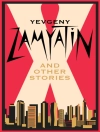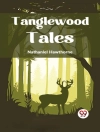It is one of the greatest conflicts—and a pivotal turning point—in history…the Chinese civil war. On one side stands Chiang Kai-shek and the Nationalists. On the other, Mao Zedong and the Communists. And their forces are about to meet in a decisive battle…the outcome of which is in the hands of one American pilot, John Hampton, a man who, like Bogart in Casablanca, couldn’t care less…
He’s a mercenary, flying for the highest bidder, his only loyalty to himself and to cold hard cash. He has nothing to believe in, and nothing to lose. But just as this is a critical moment in history, so, too, is it about to become a defining moment in Hampton’s life.
What is the extraordinary experience that has the power to penetrate Hampton’s armor of cynicism and touch his heart? What is it that makes him see that there are things, other than money, that are worth fighting—and maybe even dying—for? The surprising answers spur him to undertake the ultimate mission in Red Death Over China.
Hubbard experienced China in the 1930s in a way few Westerners did. Traveling from the ports of the China Sea to Beijing to the Great Wall and onto the hills of Southern Manchuria, he came to know the land and its people—soldiers, spies, outlaws, and monks—as well as any American could. It is that background that shines through in stories like Red Death Over China.
Also includes the flying adventures The Crate Killer, in which a test pilot uses up his nine lives parachuting nine times from crumbling planes, only to discover that his tenth flight presents the biggest challenge of all; and Wings Over Ethiopia, the story of a pilot captured and accused of being a spy by both sides in a war—and his only means of escape is through the lens of a camera.
“Highly recommended for aviation action/adventure pulp fiction.” —Midwest Book Review
Sobre o autor
With 19 New York Times bestsellers and more than 350 million copies of his works in circulation, L. Ron Hubbard is among the most acclaimed and widely read authors of our time. As a leading light of American Pulp Fiction through the 1930s and ’40s, he is further among the most influential authors of the modern age. Indeed, from Ray Bradbury to Stephen King, there is scarcely a master of imaginative tales who has not paid tribute to L. Ron Hubbard.












